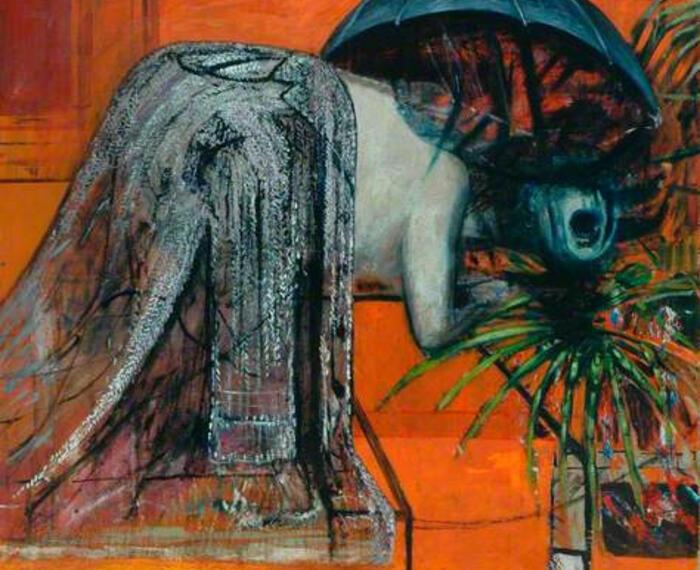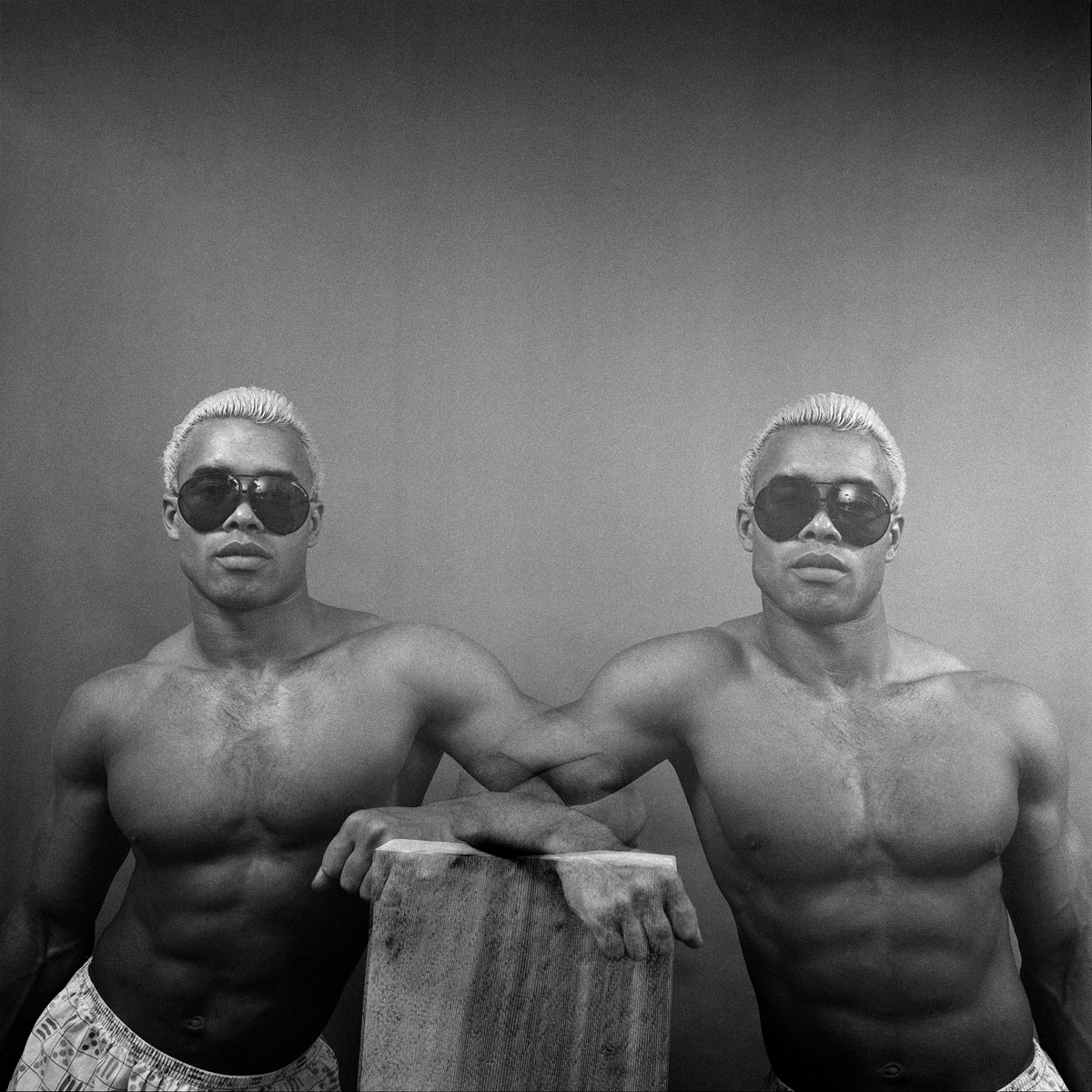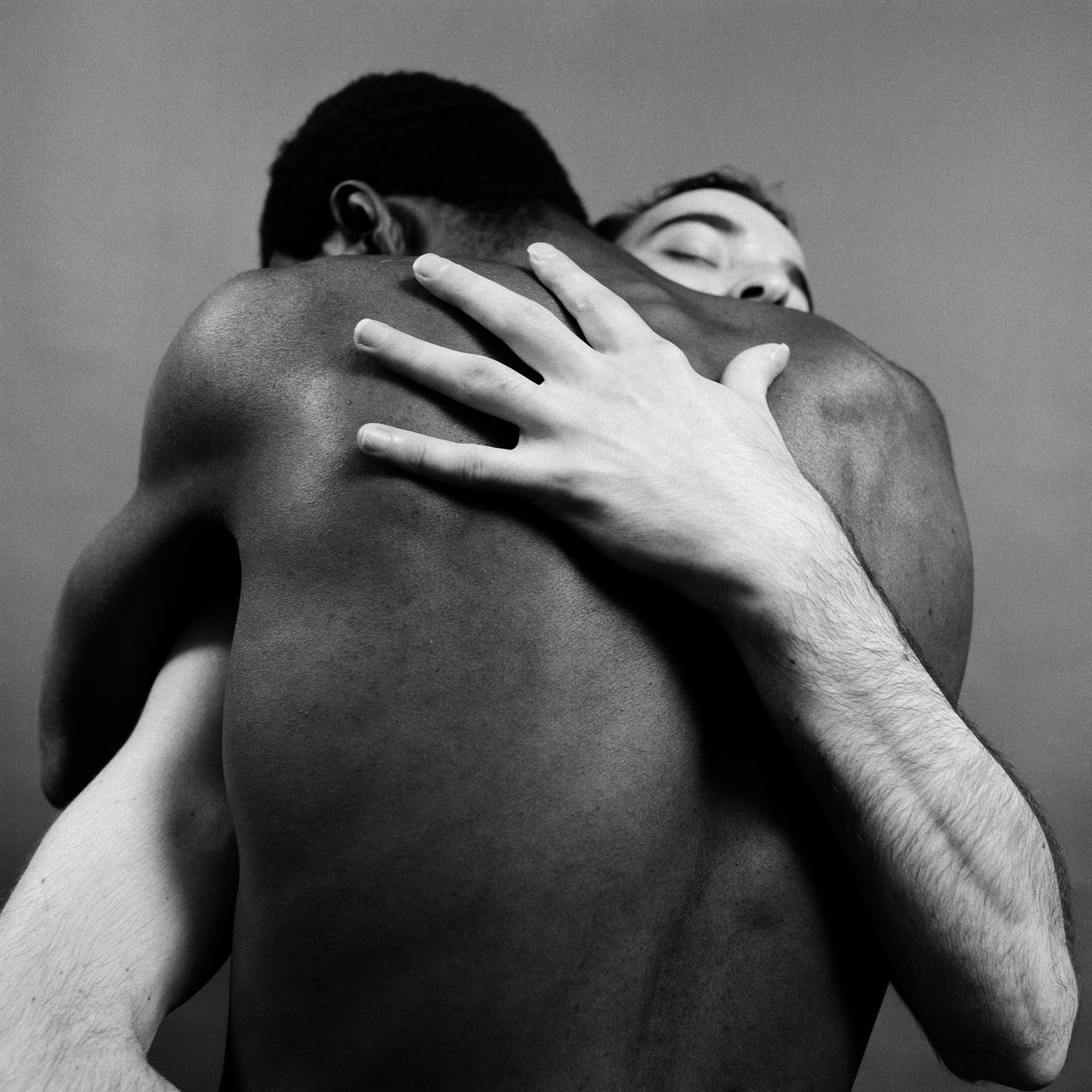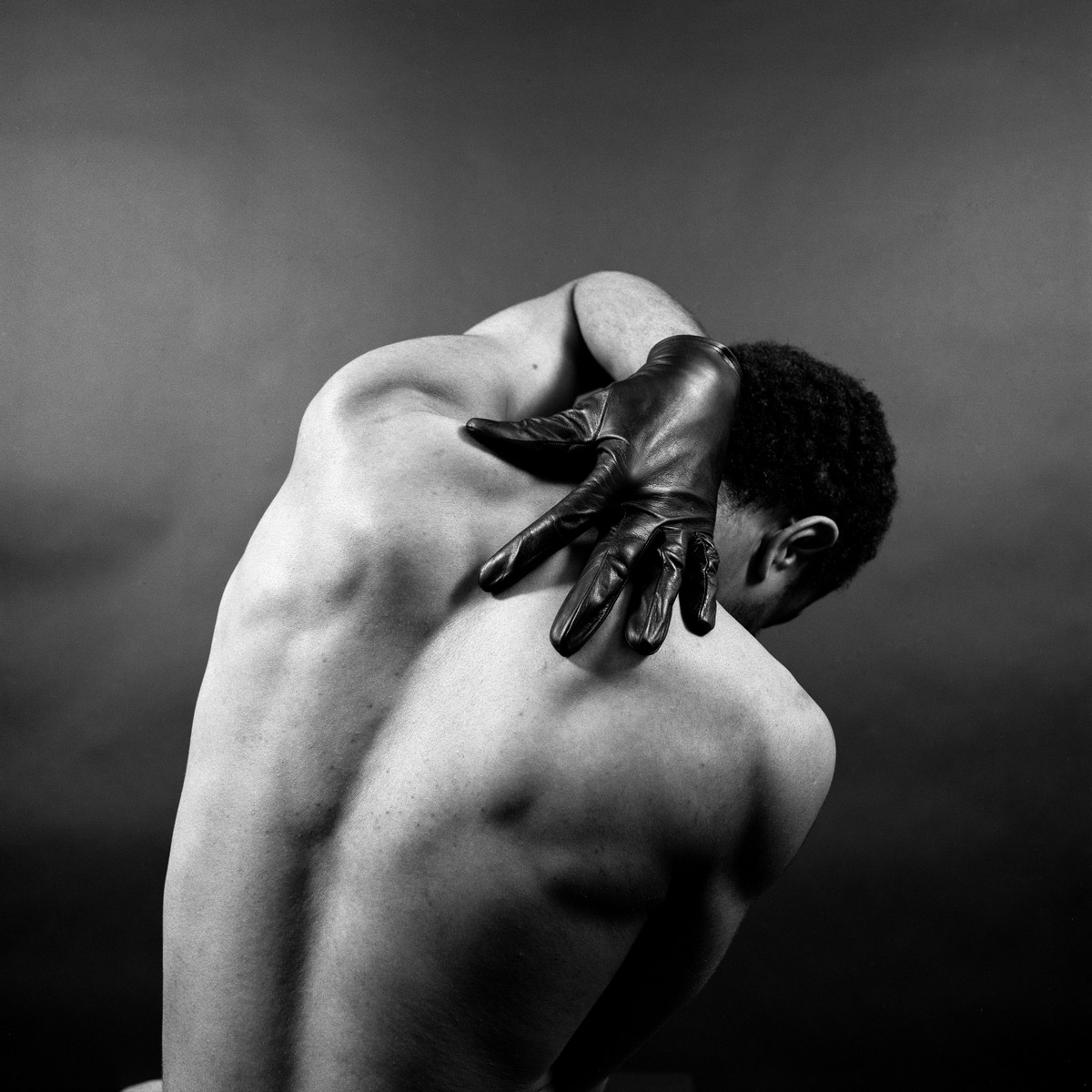


Rotimi Fani-Kayode, Untitled, 1988. Courtesy Autograph, London © Rotimi Fani-Kayode
Autograph Gallery
31st October until 22nd March 2025
The Nigerian-born, London-based photographer Rotimi Fani-Kayode (1955–1989) had a brief yet impactful career. Known for his striking and provocative photography, which typically centered the nude Black male body, his vision expressed homosexual desire and emboldened representations of Black masculinity at a time when both were still marginalised, and even taboo, subjects in mainstream British life.
In recent years, the interest sparked in Fani-Kayode has been reflected by his inclusion in shows such as the current The 80s: Photographing Britain at Tate, as well as the major Barbican exhibition Masculinities: Liberation through Photography in 2020, the latter of which situated him amongst other photographic greats: Richard Avedon, Catherine Opie and Robert Mapplethorpe. Greatly inspired by Mapplethorpe – another LGBTQ icon in the annals of photographic history – Fani-Kayode's artistic output has also been somewhat eclipsed by his tragic death due to AIDS-related illness. Both Mapplethorpe and Fani-Kayode died in 1989, within months of each other. Consequently, their now haunting images are charged with the loss of that generation. Somewhat unsurprisingly both have gained increased recognition posthumously.

Rotimi Fani -Kayode, Untitled, 1988. Courtesy Autograph, London © Rotimi Fani -Kayode
The most recent show to amplify his legacy, Rotimi Fani-Kayode: The Studio – Staging Desire at Autograph’s gallery in Shoreditch assembles never-before-seen works by the artist, giving a sense of his complex artistry. Curated by Mark Sealy, Staging Desire is presented in one large room in the upstairs exhibition space of Autograph Gallery. A fitting location, Autograph was in fact co-founded by Fani-Kayode, when it was formerly known as the Association of Black Photographers in Brixton, where the artist lived for much of his adult life and where his studio on Railton Road became his creative sanctuary and a meeting place for likeminded individuals, activists and members of the queer community. During the right-wing era of Thatcher, race riots and controversial policies such as Section 28, Brixton was a battleground for anti-racism and LGBTQ+ activity in the 1980s. To understand Fani-Kayode's work requires recognition that his images came into existence in reaction to the prevailing public discourse of Thatcherite Britain. The artist himself once matter-of-factly and defiantly described his own work as: "Black, African, homosexual photography.”
But what Staging Desire also reveals is that Fani-Kayode's art was rooted in lifelong introspection and self-expression, as a young queer man dislocated from his place of birth in Lagos, Nigeria. Raised into a prominent Yoruba family, his father was a politician and chieftain of Ife, the ancestral Yoruba capital. In 1966 during the Nigerian Civil War, the family fled and began a new life in Brighton. In the UK, Fani-Kayode departed from the conventions of his family, but maintained a sense of pride and affinity with the spiritual traditions of the Yoruba. Throughout the show we sense his attempts to coalesce two disparate identities. On the one hand, his allegiance to African customs and iconography, while on the other, embracing his homosexuality by presenting palpably erotic and intimate presentations of the male body in subversive fashion. "On three counts I am an outsider" he once declared. "In matters of sexuality, in terms of geographical and cultural dislocation and in the sense of not having become the sort of respectably married professional my parents might have hoped for. Such a position gives me the feeling of having very little to lose."

Rotimi Fani -Kayode, Untitled, c. 1988-1989. Courtesy Autograph, London. © Rotimi Fani -Kayode
Fani-Kayode briefly spent time in the United States, initially studying economics at Georgetown University followed by an MFA in photography at the Pratt Institute. In New York he encountered the flourishing subcultures and new trends in photography, meeting Mapplethorpe, which would leave an indelible impression on him. Like Mapplethorpe, Fani-Kayode's photography is staged, meticulously composed and poetic. The sensuality of his subjects, their poses, gestures and embraces, as well as the subtleties of light and shadow on their sinewy bodies in his Brixton studio, present a body of work that feels both monumental and intimate, as seen in works such as Untitled, 1988, in which two men hold one another. Created during a time when photography wasn't taken seriously as an art form by the establishment, Fani-Kayode's vision can be regarded as an elevation of the medium itself, offering a chiaroscuro style reminiscent of theatrical, Baroque painting. Still today, his works demand to be regarded and revered in the same manner.
Fani-Kayode's photography wasn't merely representational, but a tool for self-actualisation and empowerment for Blackness, queerness and the medium itself. "It is photography, therefore - black, African, homosexual photography - which I must use not just as an instrument, but as a weapon if I am to resist attacks on my integrity and, indeed, my existence on my own terms."
Lydia Figes, Curator of Digital
Autograph Gallery, Rivington Place, London, EC2A 3BA
31st October until 22nd March 2025